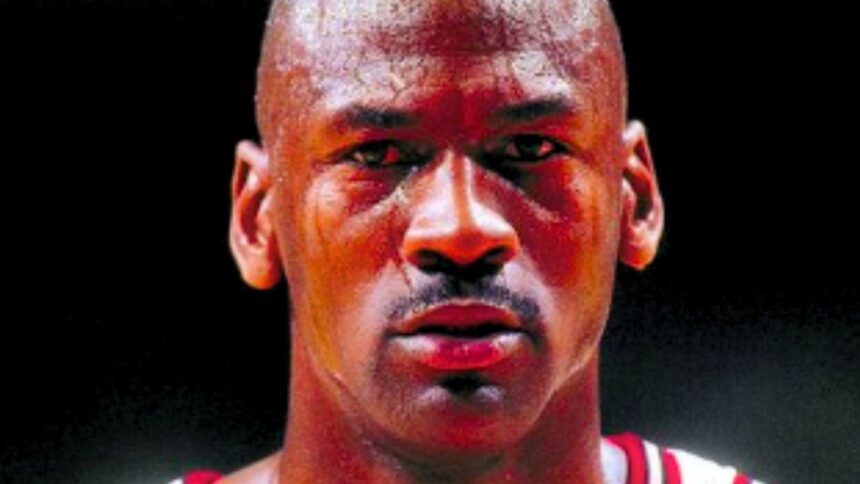In a recent episode of The Odd Couple, the basketball world was reminded once again of the enduring influence of Michael Jordan, the undisputed titan of the NBA. As discussions veered towards the electrifying performance of Anthony Edwards, the rising star of the Minnesota Timberwolves, the spotlight naturally turned to comparisons with the legendary Jordan himself.
Chris Broussard, alongside Martin Weiss, delved into the intriguing parallels between Edwards and Jordan’s playing styles. Drawing from a direct conversation with Jordan himself, Broussard revealed an illuminating insight: the GOAT sees shades of himself in the young prodigy. The acknowledgment from Jordan carries weight, affirming the burgeoning talent and potential of Edwards.
However, amidst the admiration for Edwards’ prowess, Broussard unearthed a lesser-known facet of Jordan’s mindset—his staunch stance against proposed changes in the NBA landscape. Recalling a conversation with the basketball icon, Broussard recounted Jordan’s incredulity towards the notion of reducing the number of games in a season. It was as if the very suggestion offended Jordan, who epitomized grit and tenacity throughout his illustrious career.
The rationale behind Jordan’s resistance becomes clearer upon closer examination. For Jordan, every game was a chance to compete, to showcase his skills, and to honor the commitment to the sport he loved. His incredulity mirrored a deep-seated belief in the value of perseverance and dedication—a sentiment echoed in Edwards’ relentless approach to the game, exemplified by his recent performance despite injury setbacks.
But what exactly were these proposed rule changes that elicited such a strong reaction from Jordan? Enter Adam Silver, the NBA Commissioner, whose remarks shed light on the underlying principles guiding the league’s decisions. Silver emphasized the importance of prioritizing player well-being without compromising the integrity of the game or shortchanging fans.
Jordan’s alignment with Silver’s stance underscores a shared commitment to preserving the essence of NBA basketball. Both advocate for a balanced approach that upholds the tradition of an 82-game season while acknowledging the need for player rest and recovery. It’s not about reverting to the past but rather reaffirming a fundamental principle—that healthy players should play, not only for themselves but also for the fans who invest their passion and support in the game.

The recent measures implemented by the league, including minimum appearance requirements for major awards, reflect a proactive effort to reinforce this principle. By setting clear expectations for player participation, the NBA aims to uphold the integrity of its competitions while honoring the dedication of those who compete night in and night out.
In essence, Jordan’s “offense” at the proposed changes speaks volumes about his unwavering commitment to the game and its traditions. His endorsement of Silver’s vision reaffirms a shared belief in the enduring values that define the NBA—a league built on passion, perseverance, and the relentless pursuit of greatness.
As the basketball world continues to evolve, with new stars emerging and the game itself undergoing transformations, one thing remains constant: the indelible legacy of Michael Jordan, whose influence transcends generations and whose spirit continues to inspire players and fans alike. And in the spirited performances of rising talents like Anthony Edwards, glimpses of Jordan’s greatness serve as a poignant reminder of the timeless magic of basketball.




